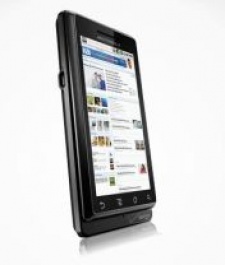The study compares each handset's first 74 days on sale, given this was the amount of time it originally took iPhone to reach this landmark figure.
With Flurry embedded applications having been downloaded to more than 80 percent of all iPhone and Android handsets, the firm is able to make what it describes as "reliable estimates" regarding each phone's userbase.
Not so Nexus One
As a result, after 74 days on sale, Google's Nexus One had notched up a userbase of 0.135 million, placing it far behind the 1 million figure iPhone amounted.
But Motorola's Droid handset on the back of what Flurry claims was fresh consumer demand for smartphones, as well as a massive marketing push from Motorola and Verizon had actually sold 1.05 million units by this point, edging it ahead of iPhone.

No doubt a surprising claim for some, Flurry rationalises this in terms of how, and just when, the two phones made their respective debuts.
Consumer change
"When the iPhone launched, consumers' concept of a mobile computing device as we now understand it, was very different," Flurry says in its blog post detailing its findings.
"Since then, Apple has spent millions of dollars training and educating consumers about capabilities of such a device, which was no small feat especially after its first foray into the handset business. Until the iPhone was introduced, most consumers, especially in the U.S. had thought of their phones as, well, just phones."
In Flurry's view, Motorola's Droid and, indeed, all smartphones have benefited from Apple's drive to open up consumer perception.
Festive feeling
Flurry also claims Droid's launch within the Christmas window of 2009 gave it a strong sales boost.
Tied in with Verizon's desire to serve up an 'iPhone killer' (iPhone famously only available on rival carrier AT&T in the US) and the $100 million marketing spend that followed, Flurry believes Droid actually had a more forceful launch than Apple's device.
Nexus One, it summarises, has been able to call on none of these supposed advantages. Instead, it may end up being nothing more than a "failed experiment" for Google, albeit one which has always been very different to a commercial carrier-based product launch.
The firm concludes, "Ultimately... developers support hardware with the largest installed base first. For Android to make progress faster, from a sales perspective, it needs more Droids and fewer Nexus Ones going forward."
[source: Flurry]





















